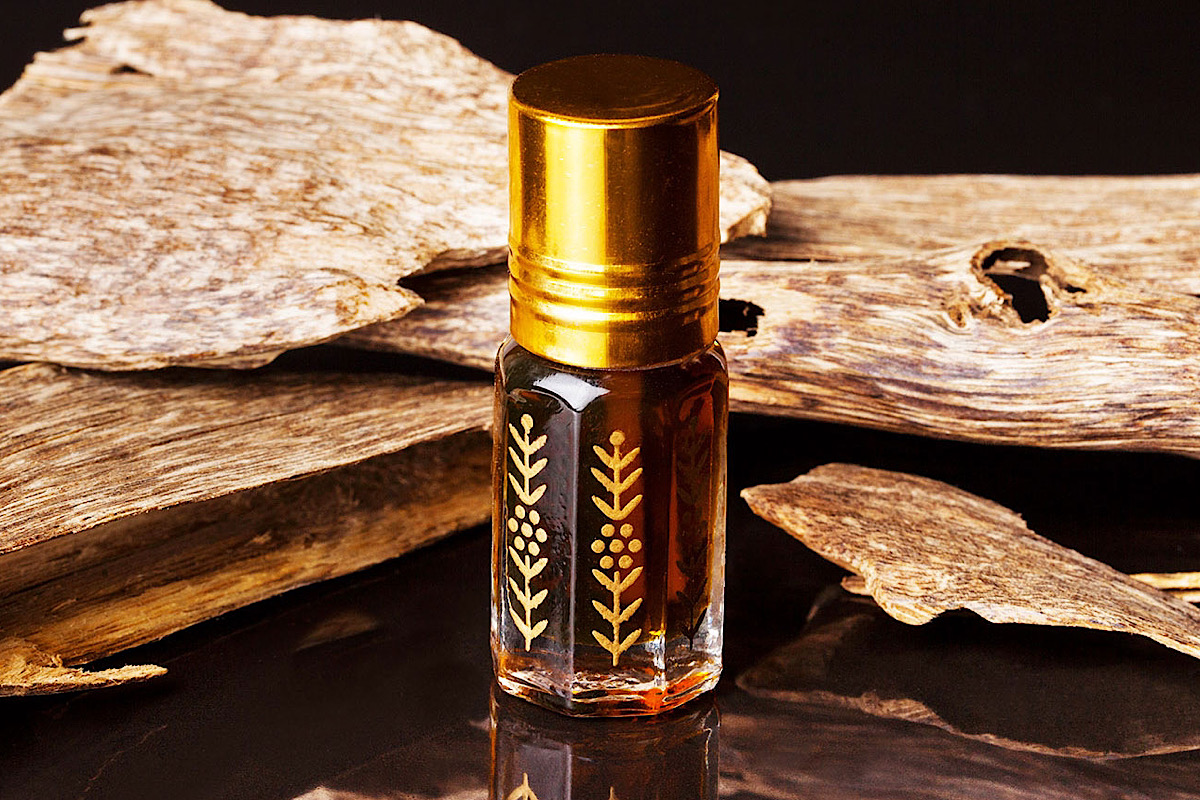Rajasthan’s second Ayurveda-Yoga-Naturopathy University to be established in Ajmer
Rajasthan Deputy Chief Minister Prem Chand Bairwa has announced that the state's second Ayurveda, Yoga and Naturopathy University will be established in Ajmer.
Oud and its exotic aromas have enchanted humanity for aeons. It’s today, back with a bang.

Exotic Centre representation image (photo, SNS)
Oud and its exotic aromas have enchanted humanity for aeons. It’s today, back with a bang.
The most sublime sensory spell ever cast on mankind is, indeed, scent! Right from the ancients to the gizmo-totting Gen Z’s, none have resisted the charm of fine fragrances. And one fragrance that has endeared through the aeons is oud.
Known as ‘agar’ in Sanskrit, ‘oud’ or ‘wood’ in Arabic, classical Indian texts like Ayurveda elaborately celebrate its medicinal properties. The Old and New Testaments, the Buddhist writings, the Ramayana and the Islamic Hadith have all glorified this enigmatic aroma. Today, this remarkable scent is witnessing a resurgence, not just as a perfume but as humanity’s uniting factor. With Eid al-Fitr around the corner, Oud draws fragrance aficionados of all faiths and races to discover its ethereal olfactory experience.
Advertisement
SAGA OF THE SCENT
In the verdant endlessness of Assam’s forest sprawl is found the Aquilaria Agallocha tree species, the infected bark of which is distilled to produce an aromatic oil called Dahn Al Oud (fat of the wood) in Arabic. The wood is burnt as incense. During its millennia-old history, the Gulf Arabs transformed it into a luxury fragrance. While they smear the oil on skin or on fabric, it is even blended with other complementing fragrances like saffron, rose, amber, musk and sandalwood to produce exotic Arabesque perfumes called ‘Khaltah’, or ‘blend’.
Since oud is central to Islamic tradition, Ramzan and Eid witness a yearly boom in mind-boggling oud-based attar (fragrance oils), perfume sprays and incense. However, it isn’t limited to just one community. “Oud has been central to nearly all cultures. Like the Irish philosopher James Joyce said, ‘In the particular is contained, the universal’, oud is truly, universally appealing,” smiles renowned oud distiller Tajul Islam Bakshi of Assam Aromas.
The word ‘agarbatti’, he explains, literally means ‘incense of agar or oud’. “But due to agar’s skyrocketing costs, it was replaced by synthetic versions,” he explains. Mr Bakshi is credited with reviving the centuries-old tradition of natural agar incenses true to their name. He also made waves in the fragrant industry with his recent masterpiece, ‘Oud N Rose’—oud distilled in pure rose water. His deft and dexterous temperature control during the process is considered a rare feat of fragrance distillation.
EXOTISICM UNPLUGGED
Fragrance shopping around Eid is a pure delight. The sheer variety of innovative oud products at Indian markets mesmerises connoisseurs and the uninitiated alike.
During a recent trip to Mumbai’s famous Muhammad Ali Road fragrance bazaar, I let nostalgia lead my nose. I chose Ajmal’s Anbar Azraque, literally ‘blue amber’, which resurrected my teenage memories of conversing with friendly Arabs at transit airports! ‘Tatkallam arabiyyah jayyad’ (you speak fine Arabic), they’d gush!
I nicknamed this attar Rooh Al Arab, or ‘the Arab soul’, considering its authentic Khaleeji (Gulf Arab) formulation that exudes the masculine sonority of the Arabic language. Opening with myrrh, a resin native to Oman and Yemen, this is an unabashedly woody attar with a sophisticated accompanying note of Taifi Rose from Saudi Arabia, a creamy musk and Indian oud.
Rainy afternoons, football at the school grounds, a muddy uniform—childhood memories that would have even an octogenarian teary-eyed! And that was Ajmal’s Super Dahn Al Oud 90. While Dahn Al Oud generally costs the sky, this was an authentic Assamese Oud experience for just Rs 900. With a moist earthiness of its own resembling the scent of soil after the first monsoon showers, its leathery, rich aromas also took me to the truffle farms of Italy, where cute canines dig up the treasured mushroom, waiting to be petted in loving acknowledgement!
The last but not the least, to top up my scent collection, was a cooling and refreshing Attar Kewda for summers and a spiritually rejuvenating benzoin loban from Minoi Meher, a quaint Zoroastrian incense shop adjoining an over-a century-old Mumbai fire temple.
SCENT OF THE ORIENT
“Scent is the soul’s solace,” smiles Mumbai-based real estate professional Vishesh Talreja, 33. Moving away from clichéd deodorants and branded French perfumes, he is among India’s young professionals contributing to the renaissance of oriental scents. “I inherited my attar passion from my father. While traditional Indian attars like rose, jasmine, and sandalwood touch the soul, oud elevates energy levels and works an inexplicable magic on your persona,” he opines.
With traditional Indian attars like rose, oud and Majmua standing tall in his wardrobe, Talreja is proud of India’s fragrance heritage. His thoughts are echoed by IT professional Krishnan R. “The warmth and love in the sandalwood incenses our grandparents lit are unparalleled. It’s now time we get back to the basics, from the impersonal mass market glamour to the soulful scents of our land,” he gleams.
The author is an independent writer, Hindustani musician, polyglot and perfumer with a fierce passion for fine scents, sounds, cultures and creative expressions.
(Photographs taken by the author)
Advertisement